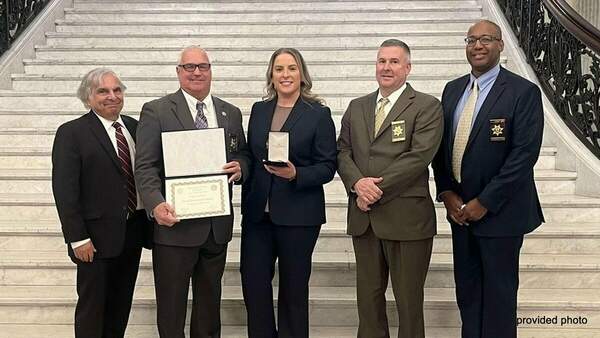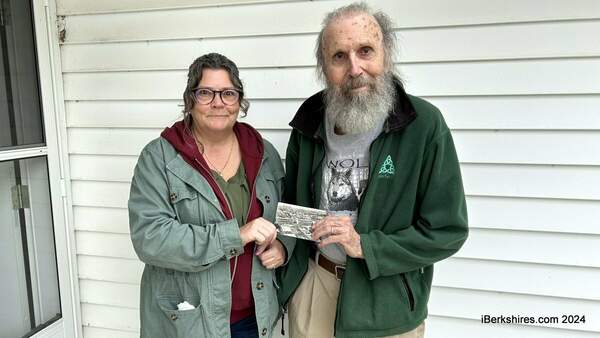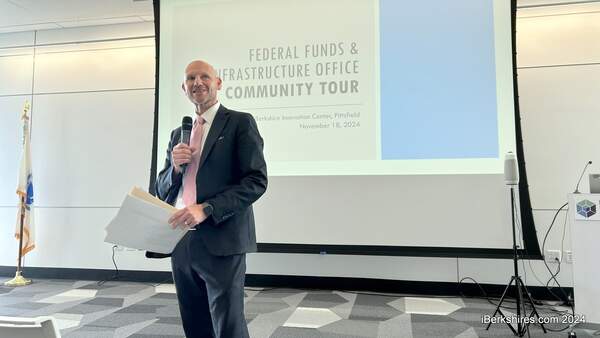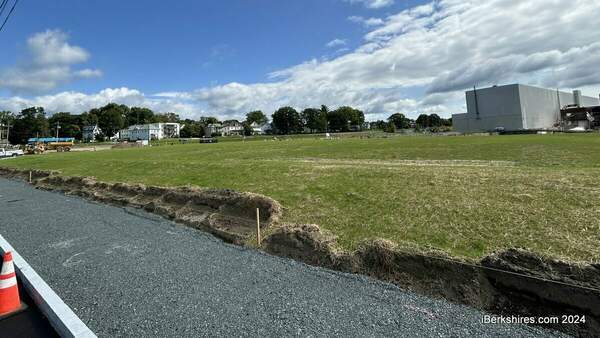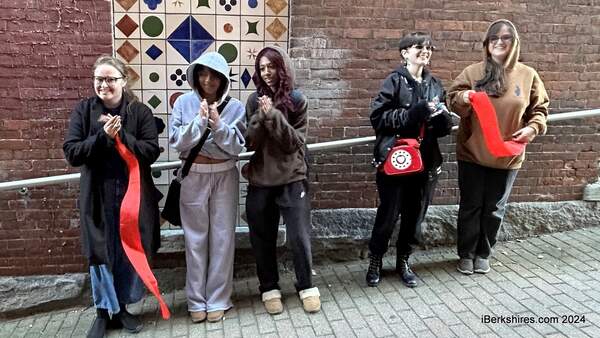DALTON, Mass. — The Select Board wants clarification on the original intent of the proposed "Clean-up Loan Fund" before deciding on the scope.
For the last six months Health Agent Agnes Witkowski, Senior Center Director Kelly Pizzi, and resident and Adams Senior Center Director Sarah Fontaine have been working with a team to develop the funds guidelines.
The town voted during a May town meeting to transfer $20,000 from free cash for seed money for a condemned housing fund.
The Select Board discussed developing this fund in March after the great need for it was brought to their attention during an October meeting.
During the Select Board town meeting, the trio demonstrated their recommendations for potential policies for the proposed fund.
The fund aims to address various levels of condemnation and unsafe living conditions for town residents, not just cases that would lead to condemnation.
The fund's development team recommended that a panel of staff and volunteers be established to oversee the application and payment process to determine eligibility on a case-by-case basis.
The panel would look at the resident's income, assets, public assistance status, and property ownership to determine eligibility and the appropriate level of funding assistance.
"I'd also advise against collecting documents such as tax returns, bank statements, so on and so forth and strictly rely on the state and federal government authorities who already do that to award fuel assistance, Mass Health, which you're proposing, but also [Supplemental Nutrition Assistance Program] is another one," Select Board Vice Chair Dan Esko said.
A major topic of contention was whether to include making the fund a hybrid loan and grant program.
The vendors would bill the town directly and the resident would pay the town back. The fund's development team recommended having a hybrid approach for the funding type, where $2,000 could be provided as a grant and any additional assistance above that would need to be repaid.
When board member Joe Diver presented the idea of a condemned houses fund, he proposed that it would let residents borrow money to hire cleaners or contractors to improve the condition of their homes and then have the residents repay it, including filing liens for nonpayment.
"The argument for liens is that they're straightforward, and that protects the town's interest in having given them give the money back," Hutcheson said.
"The argument against is that it would inhibit participation, and also that it would involve legal fees and filing fees and things like that."
Diver had a concern with the inclusion of making part of it a grant because that is against the original purpose that voters approved and wanted to ensure it stayed as a loan-base program.
"The current proposal on the table significantly expands the scope of financial commitment to this program in which the town voted. The town voters voted the 20 grand in the budget. They did not vote on a revolving account," Diver said.
"They did not vote on anything else of that nature. So, the intent of what we put forward in the proposal, which I'm the one who brought forward initially to the Select Board, and that we brought forward to the town meeting, has to stay structured in such a way that is limited and that those funds can be repaid by the estate."
He recommended that this be referred to the Finance Committee.
The vice chair agreed with some of Divers comments but questions what he meant by being repaid through the estate.
"Limiting it to people who will eventually sell the property through an estate, is that what you're talking about their estate will sell the property," Esko questioned.
"It would be like a $5,000 lien on the property, or something of that nature, that they would repay, or it's in some repayment agreement when they sell their property because intent of this was that the funds were going to come back to the town after the loan was provided to clean up the home so it does get condemned," Diver said.
If the house is not sold the town would get the money back through a lien, Diver said.
"Sometimes if people hear they need to pay something back, they won't apply for a program. So, that's where we came up with up to $2,000 can be forgiven if it will help rent dumpsters, hire a cleaning crew, do some pest control, and then beyond that, then we'll be looking to get some money back, or you're needing to invest more money," Fontaine said.
Esko said he would be in support of a smaller grant program rather than a loan program unless there is a really strong structure and the town has an understanding of the cost of administering that in the long term.
"Loans that we have to administer and keep track of. It just seems like a full time job to administer a program like this, and I don't know that that's what's being proposed," Esko said.
"I would be more in favor of a scaled down approach to start just small, micro-grants, not the loan, to help people in these situations."
Diver again recommended that this be referred to Finance Committee but the board voted instead 3-1 to give the fund development team a chance to review their proposal based on the comments made and determine the original intent of the fund.
Town Manager Tom Hutcheson also summarized some of the recommendations made by the committee.
"We decided that if the concern was not initiated by the health agent, it should be referred to the health agent for assessment because … that is part of her job to manage these types of housing issues," he said,
If the health agent decides that the fund could be part of the solution, then the resident would be referred to a fund manager or panel, depending on what the town decides is the best way to manage the fund, he said.
For competitive applicants, the funds would be given on a first come first serve basis.
The decision for the close out will be decided the point of close-out but this is not meant to be a one and done program. Participants would be referred to additional services that meet their needs.
"We believe the successful applicant for this should agree in writing to a plan, and that would involve a plan to improve and maintain a situation which would not lead to condemnation or unsafe conditions," Hutcheson said.
It is generally recommended that residents should not be allowed to apply for assistance multiple times, with the exception of extraordinary circumstances such as many years between applications.
We also have some possibilities for maintaining the fund and possible future expansion of the program to things other than houses that are immediate danger of being condemned, Hutcheson said.
Funding maintenance recommendation included replenishing grant funds as necessary through town meeting and establishing a revolving fund and have the loans revert to that account.
A topic that came up repeatedly was the number of situation this fund would benefit but does not meat the criteria of condemnation, he said.
Additional expansion possibilities included preparing housing for eligibility for Community Block Grant funding to cover the gap between the existing conditions and the condition the house has to be in to qualify for the block grant.
It also included offering assistance for applying for the Community Block Grant funding, assisting residents at risk of adopting behaviors that could lead to future house condemnation, and the hiring of staff to administer and oversee the program.
| If you would like to contribute information on this article, contact us at info@iberkshires.com. |

